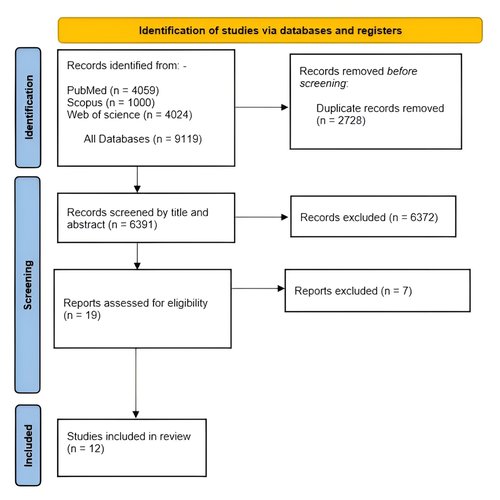-
Home
-
About JCTR
-
Gold Open Access
-
Issues
-
Editorial board
-
Author guidelines
-
Publication fees
-
Online first
-
Special issues
-
News
-
Publication ethics
-
Partners
-
Submit your manuscript
-
Submit your review report
-
Editorial Office
-

This work is licensed under a Creative Commons Attribution-NonCommercial 4.0 International License. ISSN print: 2382-6533 ISSN online: 2424-810X
Volume 9 Issue 4
Safety and efficacy of intranasal insulin in patients with Alzheimer’s disease: a systematic review and meta-analysis
Yosra Hussein AboEl-Azm, Mohamed El-Samahy, Nada Ibrahim Hendi, Amina Arar, Noha Samy Yasen, Shrouk Ramadan, Esraa M Zedan, Nada Mostafa Al-dardery, Abdulrhman Khaity*
AboEl-Azm et al. J Clin Transl Res 2023; 9(4):23-00013
Published online: July 12, 2023
Abstract
Background and aim: We performed this meta-analysis to evaluate the safety and efficacy of intranasal insulin in Alzheimer's disease (AD) patients.
Methods: A literature search was conducted for PubMed, Scopus, and Web of Science from inception till August 2022. Documents were screened for qualified articles, and all concerned outcomes were pooled as risk ratios (RR) or mean difference (MD) in the meta-analysis models using Review Manager (RevMan version 5.4).
Results: Our results from 12 studies favored intranasal insulin over placebo in terms of Alzheimer Disease’s Assessment Scale–cognitive subscale (ADAS-cog) 20IU, (MD = -0.13, 95% CI [-0.22, -0.05], P = 0.003). The overall effect did not favor either of the two groups for ADAS-cog 40IU, memory composite 20IU and 40IU, and adverse events. (MD = -0.08, 95% CI [-0.16, 0.01], P = 0.08), (MD = 0.65, 95% CI [-0.08, 1.39], P = 0.08), (MD = 0.25, 95% CI [-0.09, 0.6], P = 0.15), (MD = 1.28, 95% CI [0.75, 2.21], P = 0.36), respectively.
Conclusion: Ultimately, this meta-analysis showed that intranasal insulin in small doses (20IU) significantly affects patients with AD. Further studies are recommended on reliable insulin delivery devices to increase insulin in the central nervous system.
Relevance for patients: Intranasal insulin has shown promising results in treating patients with AD. The lower doses (20 IU) can play a positive role in improving the disease. As research continues, it is likely that this treatment will become more widely accepted and utilized in clinical practice.

DOI: http://dx.doi.org/10.18053/jctres.09.202304.23-00013
Author affiliation
1. Faculty of Medicine, Zagazig University, Zagazig 44519, Egypt
2. Medical Research Group of Egypt, Cairo 44523, Egypt
3. Faculty of Medicine, Ain Shams University, Cairo 11566, Egypt
4. Faculty of Medicine, Algiers University, Algeria 16111, Algeria
5. Faculty of Applied Medical Sciences, Misr university for science and technology, Cairo 12566,
Egypt
6. Faculty of Medicine, Al-Azhar University, Cairo 11651, Egypt
7. Faculty of Medicine, Fayoum University, Fayoum 63514, Egypt
8. Faculty of Medicine, Elrazi University, Khartoum 11115, Sudan
*Corresponding author
Abdulrhman Khaity
Faculty of Medicine, Elrazi University, 11115 Khartoum, Sudan.
Tel: +249999255031
Email: abdulrhman.marwan.khaity@gmail.com
Handling editor:
Michal Heger
Department of Pharmaceutics, Utrecht University, the Netherlands
Department of Chemistry, Utrecht University, Utrecht, the Netherlands
Department of Pathology, Erasmus Medical Center, the Netherlands
Department of Pharmaceutics, Jiaxing University Medical College, Zhejiang, China

